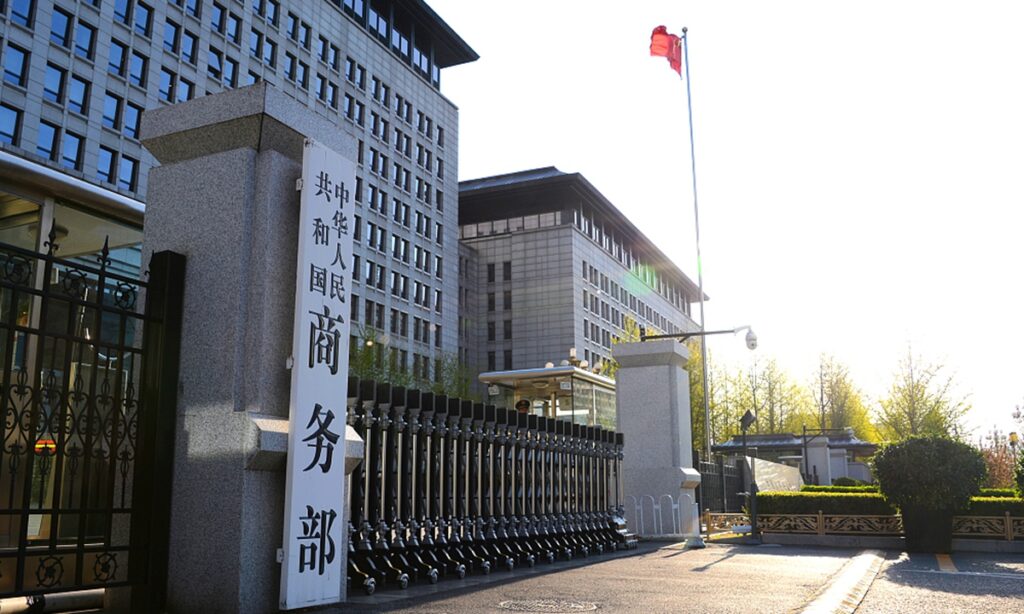China’s Ministry of Commerce (MOFCOM) on Tuesday urged Japan to immediately correct its wrongdoings in restricting exports of 23 types of semiconductor manufacturing equipment, saying the move is an abuse of export control measures and a serious departure from free trade and international economic and trade rules.
China firmly opposes the Japanese government’s export control measures, a spokesperson for the MOFCOM said in a statement.
During the public consultation period for Japan’s proposed measures, Chinese industries submitted comments and a number of industry associations publicly issued statements opposing the move. Some Japanese industry groups and companies as well, in various ways, expressed their concerns about the future uncertainty, the spokesperson said.
On April 28, the China Semiconductor Industry Association (CSIA) released a statement, sternly opposing the export control measures of Japan. It said that the semiconductor industries in China and Japan are interdependent and mutually reinforcing.
China enjoys advantages in upstream raw materials, components and packaging, and as the largest semiconductor market, it has abundant semiconductor product application scenarios. Japan is superior in semiconductor equipment, materials, certain semiconductor products and hardware integration.
In the event that the Japanese government is determined to jeopardize the well-established cooperative relationship between the Chinese and Japanese semiconductor industries, the CSIA is committed to safeguarding the legitimate rights and interests of its 900 members and shall call on the Chinese government to take resolute countermeasures, the CSIA said.
The MOFCOM spokesperson said that, regrettably, Japan did not respond to the reasonable demands of the industry, which will seriously damage the interests of both Chinese and Japanese companies. Moreover, it will seriously damage economic and trade cooperation between the two countries, disrupt the global semiconductor industry structure, and impact the security and stability of the industry and supply chains.
Japan’s move was clearly made in coordination with the US crackdown on the Chinese semiconductor industry, Ma Jihua, a veteran industry observer, told the Global Times on Tuesday.
If Japan takes restrictive measures, China is also expected to take reciprocal measures to impose restrictions, Ma stated.
Japan should proceed from the starting point of maintaining international economic and trade rules and China-Japan economic and trade cooperation, and immediately correct its wrong practices, the spokesperson said.
Measures hindering the normal cooperation and development of the semiconductor industries of the two countries should be avoided, the spokesperson added.
China reserves the right to take measures to resolutely safeguard its legitimate rights and interests, the spokesperson said.
As for domestic semiconductor makers, these ill-intended containment measures rolled out by the US and its allies will objectively leave market share to Chinese companies. After years of efforts, Chinese players have made breakthroughs in a number of core technologies, Ma added.
After two months of public consultation, the Japanese government on Tuesday announced that the 23 items will be added to the export control list, which is expected to be implemented from July 23. “Japan will keep pace with the US,” the Chinese version of the Nikkei reported.
(Global Times)




